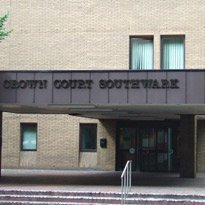A former iSoft finance director, accused of misleading investors over a multimillion pound deal, has told his trial he “knew nothing” of a forged contract used to deceive the stock market.
Timothy Whiston, who went on to become the company’s chief executive, denied concocting a “fairy tale” with fellow executives Stephen Graham, John Whelan, and Patrick Cryne.
The four men are alleged to have used a forged contract to recognise cash projected revenues from a £44.3m contract in the firm’s accounts from as early as October 2003, even though the contract was not signed until April 2005.
Jurors at Southwark Crown Court have previously heard claims that a “forgery kit” was discovered in the offices of Whiston and former chief operating officer Graham.
Prosecutors say Irish Health Service Executive boss Pat McLoughlin’s signature was forged onto a contract to dupe auditors in late 2003.
However, Whiston said: “I did not know about the existence of a forged document until I started reading the papers for this case.”
He also told jurors iSoft had developed a policy under which a contract did not have to be signed in order to recognise the revenue.
“Clearly a signed contract is your gold standard, but it is not required as long as [there are] expectations and beliefs that completion of that exercise is expected to take place in due course,” he said, adding that other “persuasive evidence” could be put forward.
Richard Latham QC, prosecuting, grilled Whiston over what he knew about the forged contract at the time it was handed to Firoj Babariya from iSoft’s auditors Robson Rhodes.
Whiston said: “Somebody must have made a decision to forge a document and give it to the auditors.”
Mr Latham responded: “That decision to tell the fairy tale had to involve the finance director.”
But Whiston shot back: “It did not have to involve me and it did not. It did not come to my attention. Had it done so clearly I would have taken action, but it did not necessarily have to involve me.”
He added that at the time his mind was occupied with a hearing at the Court of Appeal after the Competition Appeals Tribunal ruled that the Office of Fair Trading should review the merger between iSoft and fellow IT firm Torex.
Whiston said that he believed there were two copies of a “finalised” contract signed by iSoft awaiting the signature of the Irish Health Executive in existence in late 2003. Neither copy has been found.
The four former directors of iSoft deny conspiracy to make misleading statements promises or forecasts, contrary to the Financial Services and Markets Act 2000 and section 1 of the Criminal Law Act; although Cryne is not before the court for health reasons.
None of the four men have any connection with iSoft today. The company was sold to Australian software firm IBA Health in October 2007 and became part of CSC’s healthcare group earlier this year. The trial continues.
Comments on this story have been disabled to comply with the law on contempt of court, but will be re-enabled when the trial concludes.

